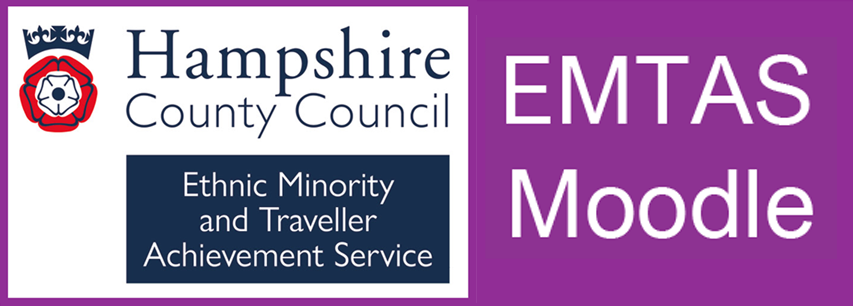Blog entry by Astrid Dinneen
Anyone in the world
By Hampshire EMTAS Team Leader Sarah Coles
This blog is about terminology and our understanding of a specific group of children for whom English is an Additional Language: heritage language speakers.

Most practitioners who’ve spent any time at all working with
multilingual learners in schools will be familiar with the concept of the
international new arrival; children who come to the UK from overseas having
been immersed in another language from birth.
Where they are typically developing, these children’s first language
skills will be broadly similar to those of anyone who’s had a monolingual start
in life. Older learners who have been
schooled in their language (L1) in country of origin may have literacy skills
as well as oracy, whilst younger children who’ve not yet started to learn to
read and write may have age-appropriate oracy skills only. Whatever their skills in L1, it is often
shortly after their arrival to the UK that these children embark on the task of
adding English to their repertoire, hence they might be described as ‘sequential
bilinguals’; L1 first, followed by English.
Heritage language speakers are a bit different. The term ‘heritage language speaker’ is used to describe a child growing up in a society where their home language is not the same as the majority language. For example, a heritage language speaker might be a child born in the UK to Polish speaking parents. The main language in use at home might be Polish but outside of the home, they will also have exposure to English, the societally dominant language. For these children, the model of bilingualism is ‘simultaneous’; exposure to both languages from birth (or shortly after). What this means is that whilst such a child might have access to good L1 role models at home, overall their access to Polish is typically less than had they been born and raised in Poland. So they may present with different skills in L1 in comparison with a monolingual Polish-only child.
Many UK-born heritage language speakers have their first experience of being immersed for prolonged periods of time in an all-English environment at pre-school. They will, from that point onwards, rapidly develop their vocabulary in English, alongside the continuing development of L1. However, due to their more limited exposure, it would be expected that their L1 oracy skills might develop more slowly than those of a child born and raised in an essentially monolingual setting, where the main language in use in all social situations is L1.
As they reach school age, heritage language speaking children suddenly experience a dramatic increase in the amount of time they spend in social settings where English is dominant. This typically corresponds with a reduction in access to L1. Whilst in Year R, they may find opportunities to continue to use L1, for example in their spontaneous play with other children who share the heritage language; but in adult-led activities they quickly learn that English is required. Often, it is from the start of school that heritage language speakers’ L1 development plateaus whilst their English comes on in leaps and bounds. There can develop a dichotomy in terms of the words the child knows in their two languages too, with the academic vocabulary known only in English and L1 increasingly beached in informal, home-based contexts. Further, parents often notice that when addressed in L1, their child prefers to respond in English.
Thus from Year R onwards, it takes considerable effort on the part of parents to ensure their child does not lose the heritage language. This is where the Family Language Policy (FLP) comes in. FLPs are important in determining whether or not the heritage language will be successfully transmitted to the child and maintained over time, and comprise the unwritten ‘rules’ around language use in the home. In families where parents continue to use L1 at home, its transmission and maintenance tend to be more successful. But in families where parents gradually abandon L1 in favour of English, which is especially likely in families where one of the parents is a monolingual English speaker themselves, the prognosis is much bleaker. Ceding L1 in favour of English might be prompted by their children’s growing preference for the majority language, but the often unintended consequences can include those same children no longer being able to talk to their grandparents, with the chances of the heritage language surviving to the next generation, their children’s children, reduced to zero.
So what does this matter to practitioners? Well, especially in the Early Years, it is
important that schools work closely with parents if the complete loss of the
heritage language is to be avoided. These
days, ICTs gift us with lots of ways in which we can make space for children’s
L1s in Foundation Stage settings, and it’s really important that practitioners
avail themselves of these. If they do
not overtly value children’s L1s and encourage their use at school, children
will quickly learn to leave their heritage languages at the school door to wait
for home time.
To find out more about ICTs that could be used at school to promote children’s heritage languages, see
Use of ICT (hants.gov.uk)
[ Modified: Wednesday, 6 December 2023, 9:26 AM ]
